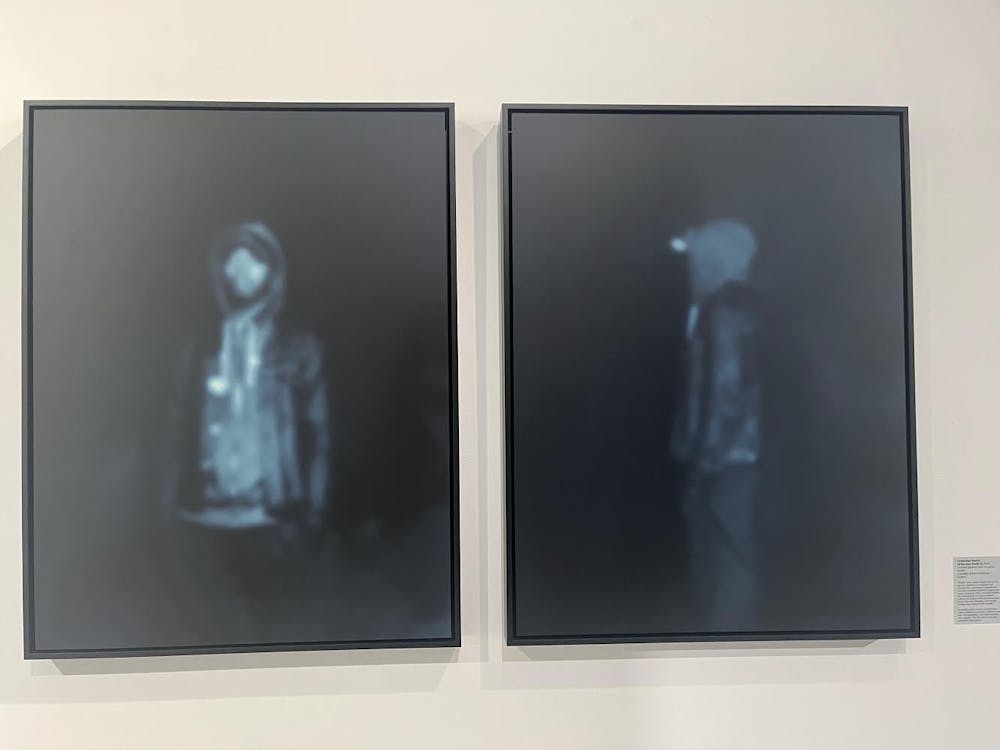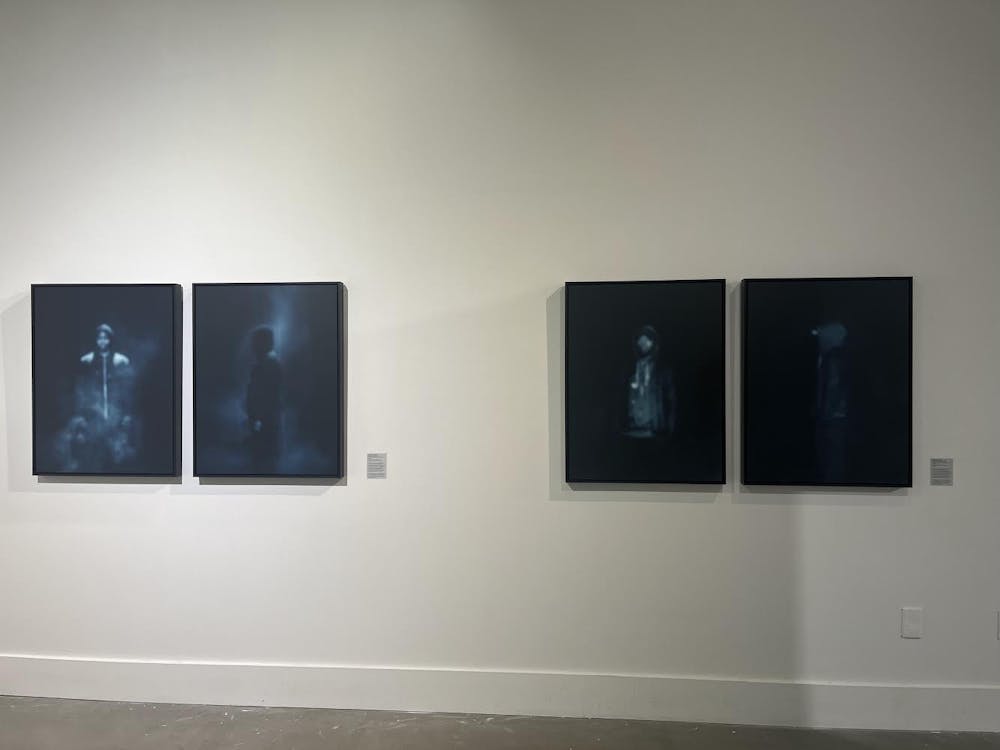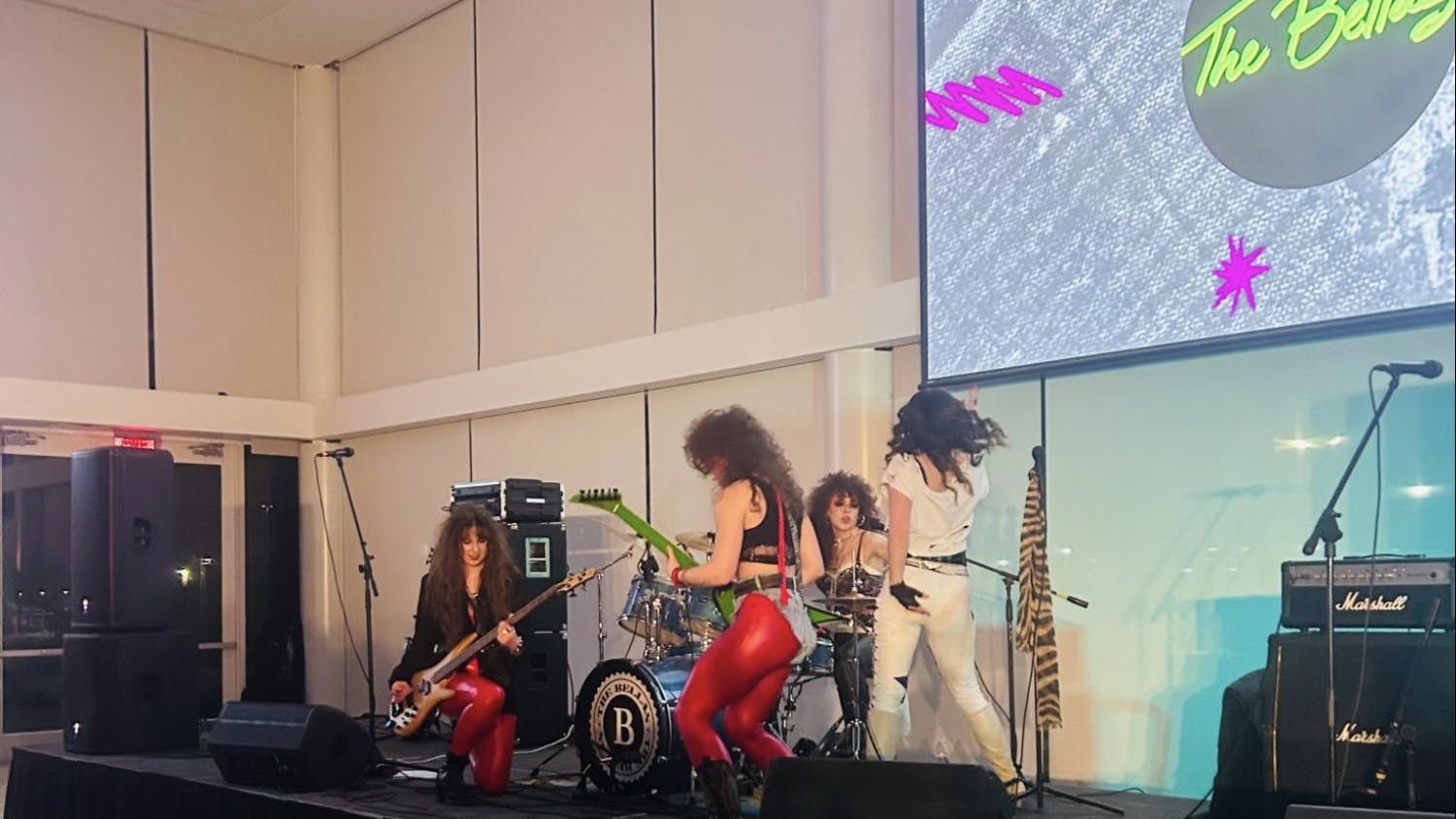By Ally Uhlendorf
Staff Writer
The College Art Gallery opened the floor to the “Carrie Mae Weems: The Usual Suspects” exhibit on Aug. 30, followed by a panel discussion on Sept. 14.
Using interpretive photographs and videos, the exhibit highlights the struggles and reality of what it means to be a Black person in America. The room contains photographs, as well as audio and visual art pieces, that paint the scene of injustice and oppression. The captivating, interactive gallery brings both sadness and shock.
“While the exhibit itself was fascinating, the panel was extremely interesting to me,” said Amanda Incalcaterra, a freshman special and secondary education and English major. “Hearing about the panelists’ personal experiences was very eye-opening.”
Carrie Mae Weems is a contemporary artist who uses photographs, audio and text to examine facets of life in America, specifically for minorities. The purpose of this display is to focus on the dehumanization and killings of Black men, women and children by police. Throughout this exhibit, multiple photographs question stereotypes that are placed onto Black Americans that associate them with criminality.
In many of the photographs, the faces featured are either obscured by colored squares or blurred out. This is to represent the assumptions made around certain races and the idea that, because somebody is a specific race, they are immediately to blame.

(Photo courtesy of Ally Uhlendorf / Staff Writer)
Following the opening of the exhibit, the College hosted a panel discussion led by African American studies & Criminology Assistant Professor Dr. Michael B. Mitchell. The event featured panelists Tracy Thompson, New Jersey’s insurance fraud prosecutor, and Jessica Abolafia, a graduate student, president of the College’s chapter of Students for Prison Education & Reform and vice president of Sigma Tau Delta.
Throughout the panel, speakers discussed either their personal experiences with oppression or their knowledge on the topic.
“Besides me having advanced degrees, a Ph.D. and being a professor, I’m a Black man in America,” Mitchell said. “Despite my knowledge and education, that does not protect me from harassment from the police.”
Both Mitchell and Thompson spoke upon their first-hand encounters with brutality and oppression. They were exposed to inequity at a very young age and grew up in a world that was only reserved for White people.
“I realized at just nine years old that this color of my skin was not just beautiful brown — it meant something else to other people,” Thompson said.
Abolafia gave insight through her knowledge on African American studies and gave examples of how her privileges as a White person growing up differed from people of color’s opportunities growing up. She expressed how her deep knowledge on the topic of oppression did not come from personal experiences. Rather, it came from her education in the program and how much that impacted her life.

(Photo courtesy of Ally Uhlendorf / Staff Writer)
“I don’t come to this discussion with lived experiences that align with the concerns that we are discussing today,” Abolafia said. “My knowledge stems from my African American Studies major, which shapes the way I view the world and interact with people every single day.”
The discussion panel gave a deeper exploration into the topics that are examined throughout the exhibit and gave personal, live examples of the issues spotlighted in the art pieces.
The exhibit will continue to be open to the public to view until Oct. 30 and is held in the Art & Interactive Multimedia Building. The gallery hours are listed on the College’s Art Gallery website and all exhibitions are free and open to anyone.







